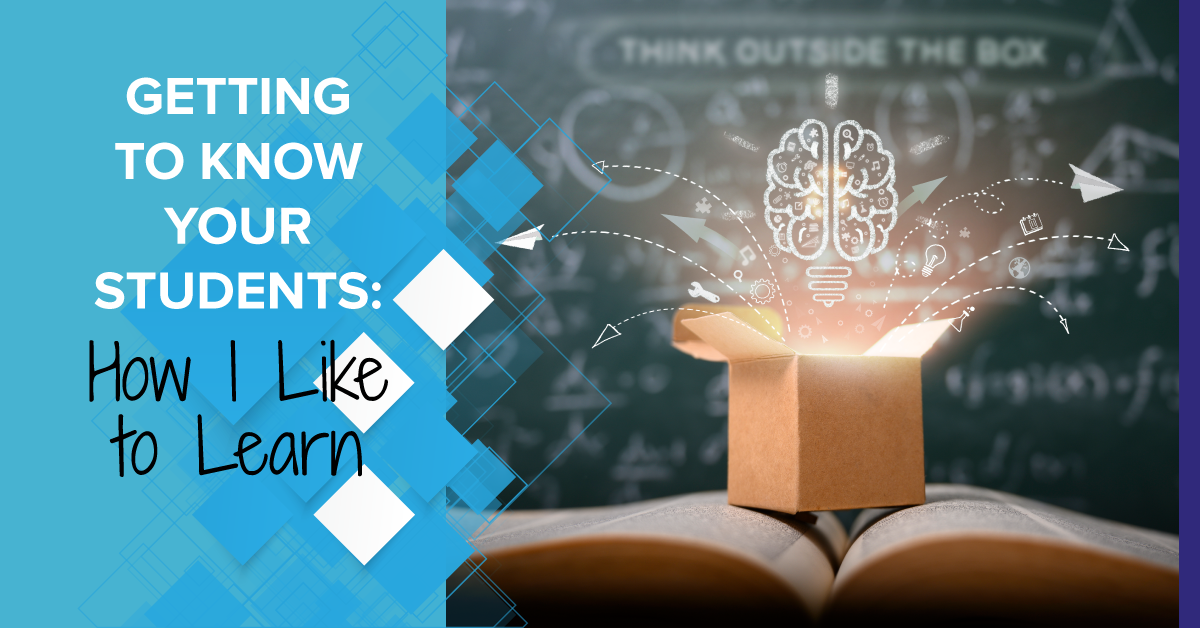A squirt gun would never be mistaken for a real gun, right? Dive into the thought-provoking world of Water. Gun. Argument and challenge what we choose to believe. A thought provoking and powerful piece in a docu-theatre style.
Getting to Know Your Students: How I Like to Learn
When you’re starting out a new term, it’s always a priority to get to know your drama students, whether they’re new to you or returning for another class. We have lots of resources for fun ways to get to know your students, including active games and novelties, icebreaker questions, and bingo. These activities are great for discovering your students’ likes and dislikes, learning interesting facts about them, and gaining some insight into why they’re taking drama class.
You can also use questionnaires to get to know your students better. The advantage of using questionnaires in class is that they can be kept confidential, which means students can be a bit more forthcoming with their answers than when they’re working in a large group or with classmates they may not know very well. We have a questionnaire to find out about your students’ past theatrical experiences with drama and theatre, as well as a questionnaire to gauge your students’ previous theatrical knowledge.
It’s also helpful to know what kind of learners your students are. Some students are visual learners, who learn best by reading or watching examples. Some students are auditory learners, who learn best by listening to instructions. Some students are kinesthetic learners, who learn best by getting up and practicing the tasks right away. Some students may need additional support for their learning, such as more time to read the material, an aide or interpreter, or working with a peer. Some students thrive in a busy, active environment, while others work best when it’s quiet and calm. Some students hate group work, while others need at least one partner to keep them on task.
Some of this information may previously have been given to you, if your students already have an IEP (individualized education program) or similar identified learning accommodation. However, regardless of whether your students are neurotypical or neurodiverse, or whether they have a diagnosis or not, it is beneficial to you to know how you can best support your students in their learning journey. Even knowing what other classes your students have this semester is helpful information to have. You won’t be able to provide every single accommodation, but you might be able to make some adjustments so that you’re employing a wider variety of lesson delivery techniques, offering choices on how your students can learn and present the lesson material, or avoiding assigning a huge project that’s due the same week as their big chemistry lab or history test.
Some topics you might want to ask about in your learning style questionnaire include:
- Learning styles (auditory, kinesthetic, visual), if known
- Learning preferences (projects, worksheets, lectures, hands-on activities, etc.)
- Students’ tolerance for noise in the classroom
- Whether students work better individually, with a partner, in small groups, or in large groups
- Whether students prefer to do homework at home or complete it during class time (if available)
- Accommodations that students could benefit from
- What students wished their classmates or teacher knew about them
- Topic preferences (students might take drama but hate acting — are there options for them?)
You can format your questionnaire with circle answers, checkboxes, or short answer sections — whatever works. It’s nice to have a variety of types of questions to answer. Leave space for students to include additional notes or explanations, and reiterate to them that you will keep responses confidential. Check out our questionnaire template at the bottom of this article for a formatting example.
Be sure to thank your students for their time and honesty, as it will truly benefit everyone in the classroom (anonymously, of course). And as much as possible, apply their responses to your classroom and lessons! Your follow-through will demonstrate that you genuinely care and are listening. And when students have the resources in place to help them, they will be that much closer to success.
Additional Resources:
Giving Instructions for Different Learning Styles
The Inclusive Classroom: Drama Class for Students with Special Needs
Tips for Running a Relaxed Performance of Your Show
(this article gives ideas about making accommodations for various student needs)
